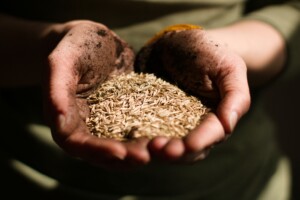 Understanding Christian Paradox
Understanding Christian Paradox
The Christian life contains a multitude of paradoxes, inviting us to embrace truths that may contradict conventional wisdom. One such paradox lies in Jesus’ profound statement in John 12:24-26: “Unless a grain of wheat falls into the earth and dies, it remains just a single grain; but if it dies, it bears much fruit. Those who love their life lose it, and those who hate their life in this world will keep it for eternal life.”
The Christian life is about grappling with such paradoxes. We encounter the mystery of the crucified God—our murdered Messiah—whose death puzzlingly brings forth life. Through theological complexities such as the incarnation and the Trinitarian formula, we are urged to embrace the enigmatic nature of our Christian journey. Jesus’ words challenge us to confront the tension between clinging to what we would make of our lives left to our own devices, and surrendering our lives for God’s promise of abundant life.
Precious Gift of Life
But what does it truly mean to “hate” our lives in this world? Is life worthless? Should we be throwing it to the wind? Are we called to devalue the precious gift of life or resign ourselves to a fate of suffering? Such conjectures would contradict the Johannine witness, which is awfully concerned with abundant life — “I came that they might have life and have it abundantly” (John 10:10).
Like any good paradox, these words invite us into a deep wisdom that forgoes any cheap or naïve account of the world. We exchange this account for a lifestyle that embodies the full hue of human existence. Joys and pains, confusion and clarity, life and death.
The Value of Vocation
I think John’s words are about vocation. Vocation is a theological word that means “calling”. In other words, Christians believe God’s voice calls out to us. He invites us into a truer expression of who we are meaning to be as God’s beloved people.
A sober, wisdom-oriented account of Christian life reminds us that we often settle for lesser versions of ourselves. The world around us can restrict the range of life’s possibilities. It may even go so far as to say we long to be saved from ourselves. Our narrow vision and fear-motivated proclivities shackle our minds. We forget that life with God is much bigger than the confines we choose to live in as a society and as individuals.
These confines of our mind rattle our sense of neighborliness. They dampen our imagination for a more just society, and quash the will to enact a life-giving vocation.
Sometimes it takes the drastic, impossible language of figures like John to shake us from our stupor. Sometimes, it takes being reminded that life is found when the diminishing life we’ve created dies. And sometimes, we need the words of novelist Gail Godwin: “Something’s your vocation if it keeps making more of you.”[1]
[1] Gail Godwin, Evensong (New York: HarperPerennial, 1994), 45.

